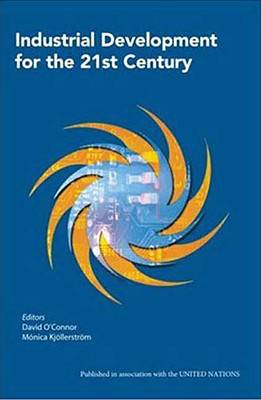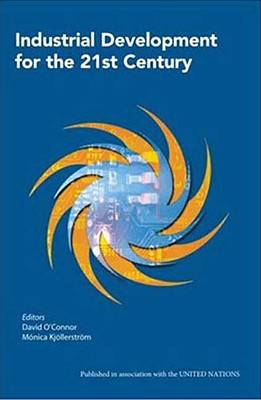
- Retrait gratuit dans votre magasin Club
- 7.000.000 titres dans notre catalogue
- Payer en toute sécurité
- Toujours un magasin près de chez vous
- Retrait gratuit dans votre magasin Club
- 7.000.0000 titres dans notre catalogue
- Payer en toute sécurité
- Toujours un magasin près de chez vous
104,95 €
+ 209 points
Description
With very few exceptions, industrial development has been central to the process of structural transformation which characterises economic development. Industrial Development for the 21st century examines the new challenges and opportunities arising from globalization, technological change and new international trade rules.
The first part focuses on key sectors with potential for developing countries, focussing on two key themes. First, traditional points of entry for late industrializers - like textiles and clothing - have become even more intensely competitive than ever before, requiring more innovative adaptive strategies for success. Second, countries now recognize that manufacturing does not exhaust the opportunities for producing high value-added goods and services for international markets. Knowledge intensity is increasing across all spheres of economic activity, including agriculture and services, which can offer promising development paths for some developing countries. The final section addresses social and environmental aspects of industrial development. Labour-intensive, but not necessarily other patterns of industrial development can be highly effective in poverty reduction though further industrial progress may be less labour-intensive.A range of policies can promote industrial energy and materials efficiency, often with positive impacts on firms' financial performance as well as the environment. Promoting materials recycling and reuse is an effective, if indirect means of conserving resources.
Finally, the growth of multinational interest in corporate social responsibility is traced, with consideration given to both the barriers and opportunities this can pose for developing country enterprises linked to global supply chains.
Spécifications
Parties prenantes
- Auteur(s) :
- Editeur:
Contenu
- Nombre de pages :
- 430
- Langue:
- Anglais
Caractéristiques
- EAN:
- 9781848130265
- Date de parution :
- 01-05-08
- Format:
- Livre relié
- Format numérique:
- Genaaid
- Dimensions :
- 161 mm x 244 mm
- Poids :
- 839 g

Les avis
Nous publions uniquement les avis qui respectent les conditions requises. Consultez nos conditions pour les avis.






